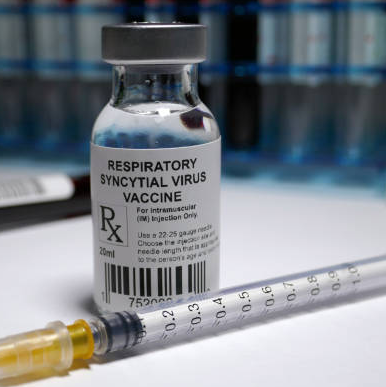Frequently Asked Questions about RSV
Respiratory syncytial virus (RSV) causes infections of the lungs and respiratory tract. It’s so common that most children have been infected with the virus by age 2. RSV can also infect adults.
In adults and older, healthy children, RSV symptoms are mild and typically mimic the common cold. Self-care measures are usually all that’s needed to relieve any discomfort.
RSV can cause severe infection in some people, including babies 12 months and younger, premature infants, older adults, people with heart and lung disease, or anyone that is immunocompromised.
Respiratory syncytial virus enters the body through the eyes, nose or mouth. It spreads easily through the air on infected respiratory droplets. You or your child can become infected if someone with RSV coughs or sneezes near you. The virus also passes to others through direct contact, such as shaking hands.
The virus can live for hours on hard objects such as countertops, crib rails and toys. Touch your mouth, nose or eyes after touching a contaminated object and you’re likely to pick up the virus.
An infected person is most contagious during the first week or so after infection. But in infants and those with weakened immunity, the virus may continue to spread even after symptoms go away, for up to four weeks.
Signs and symptoms of RSV most commonly appear about 4-6 days after exposure to the virus.
In adults and children, RSV usually causes mild cold-like signs and symptoms.
These may include:
In severe cases RSV can spread to the lower respiratory tract, causing pneumonia or bronchiolitis.
Signs and symptoms may include:
Infants are most severely affected by RSV.
Signs and symptoms of severe RSV infection in infants include:
Most children and adults recover in one to two weeks, although some might have repeated wheezing. Severe or life-threatening infection requiring a hospital stay may occur in premature infants or in anyone who has chronic heart or lung problems.
Wash your hands often. Teach your children the importance of hand-washing.
Avoid exposure. Cover your mouth and nose when you cough or sneeze. Limit your baby’s contact with people who have fevers or colds.
Keep things clean. Make sure kitchen and bathroom countertops, doorknobs, and handles are clean. Put used tissues in the trash right away.
Don’t share drinking glasses with others. Use your own glass or disposable cups when you or someone else is sick. Label each person’s cup.
Don’t smoke. Babies who are exposed to tobacco smoke have a higher risk of getting RSV and potentially more-severe symptoms. If you do smoke, never do so inside the house or car.
Wash toys regularly. Do this especially when your child or a playmate is sick.
The health unit will be working directly with these homes to ensure eligible residents have access to this vaccine when it becomes available.
Having RSV may lower immunity and increase the risk of getting COVID-19 for kids and adults and these infections may occur together, which can worsen the severity of COVID-19 illness.
If you have symptoms of a respiratory illness, your doctor may recommend testing for COVID-19.

